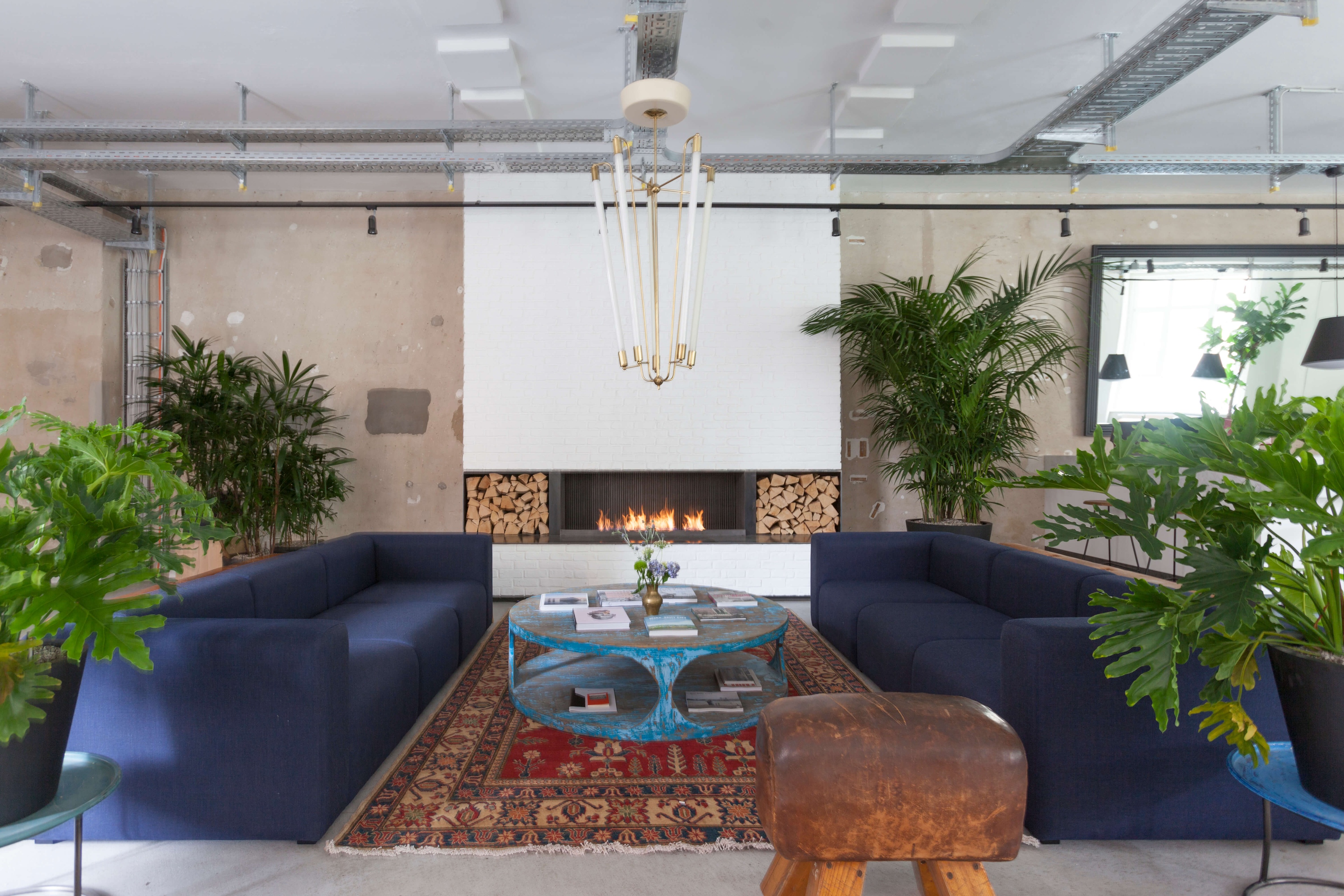
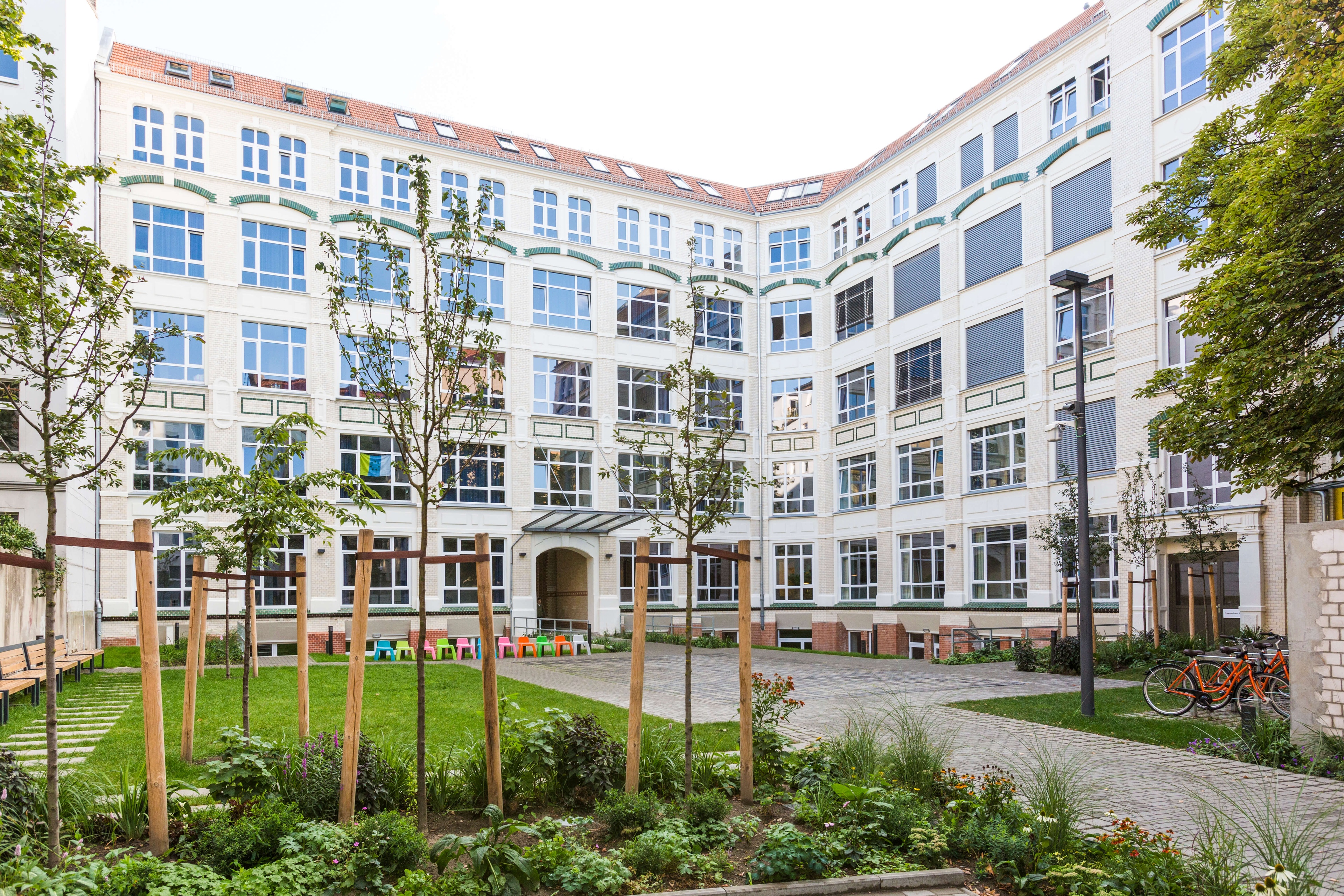
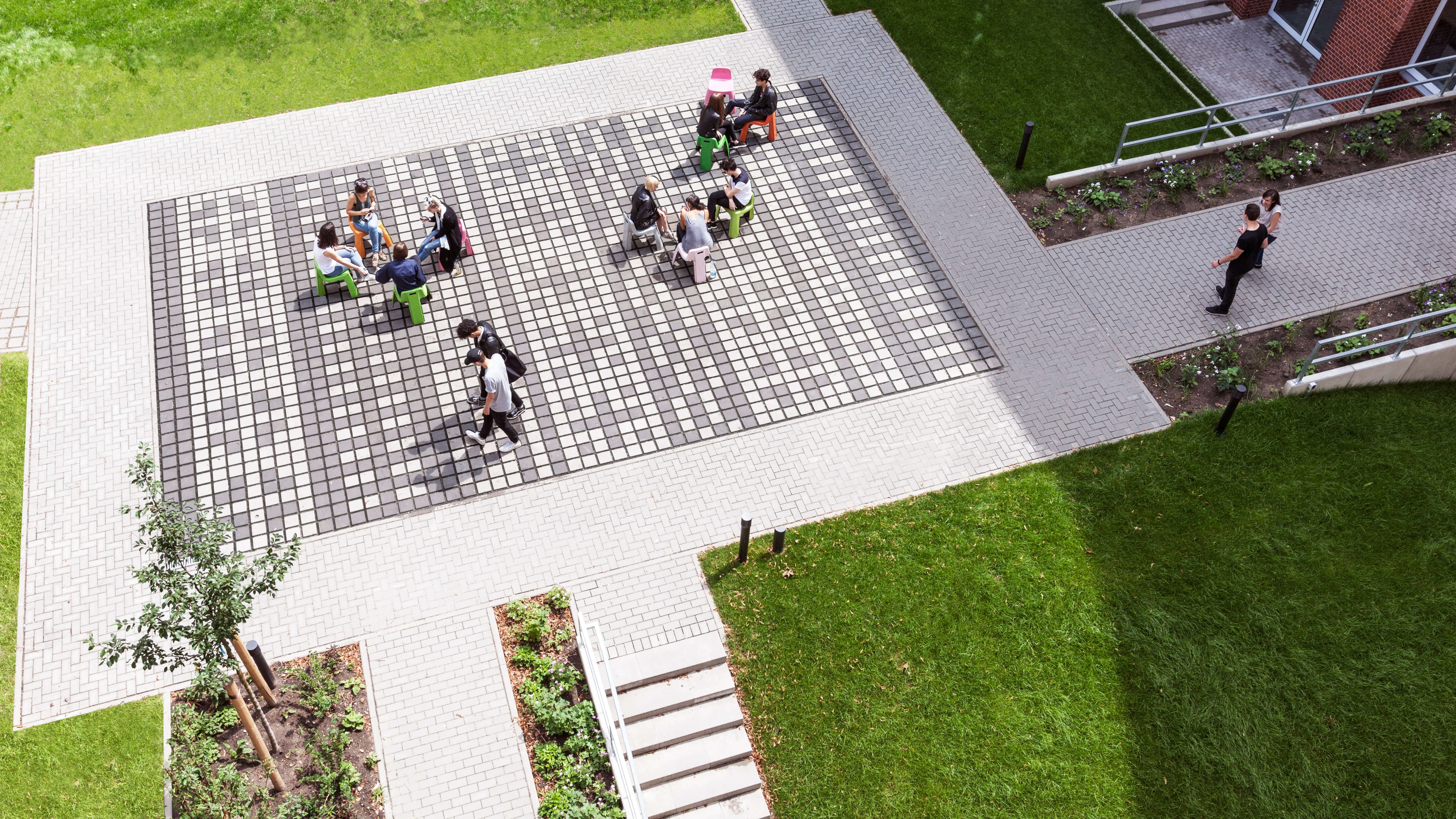
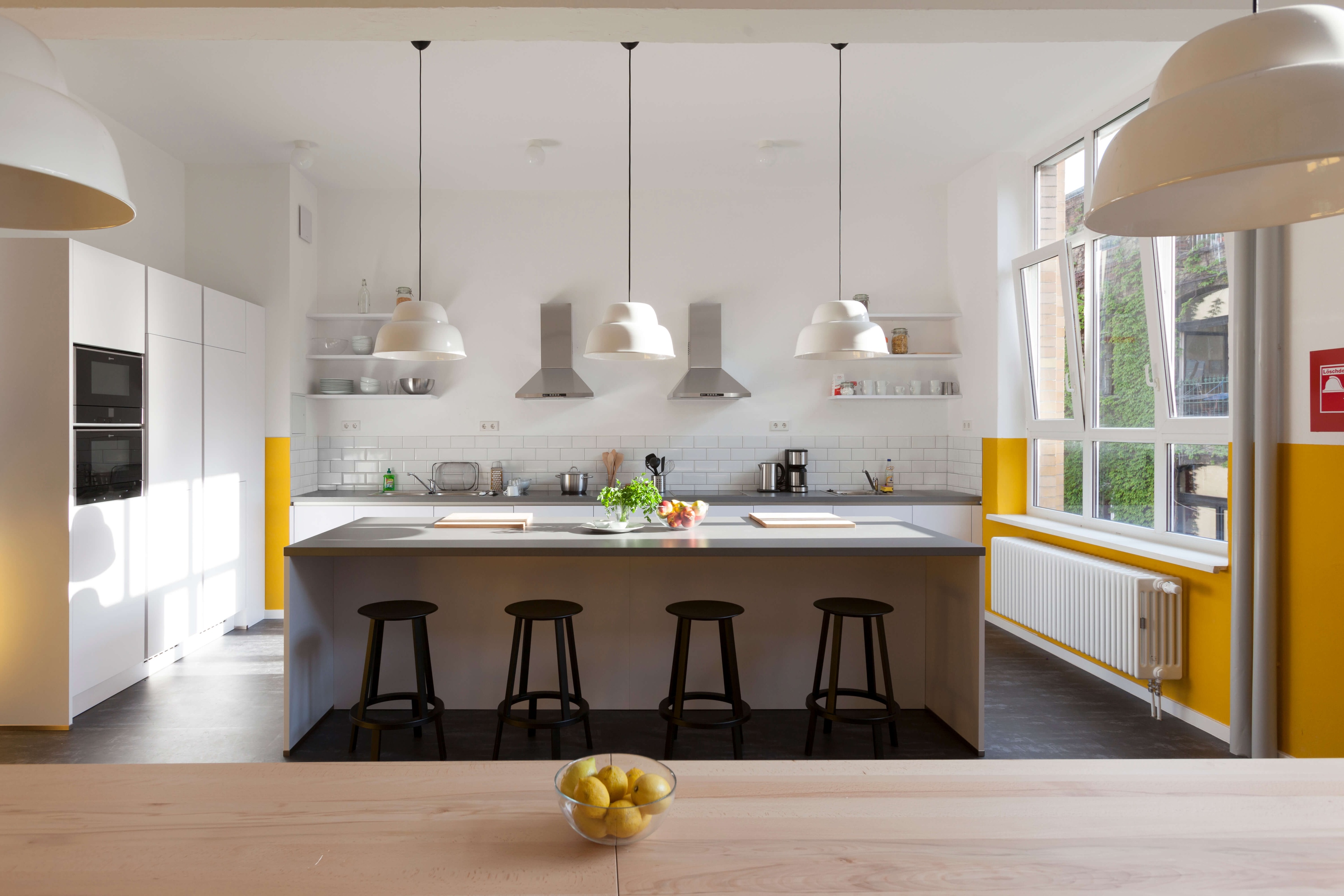
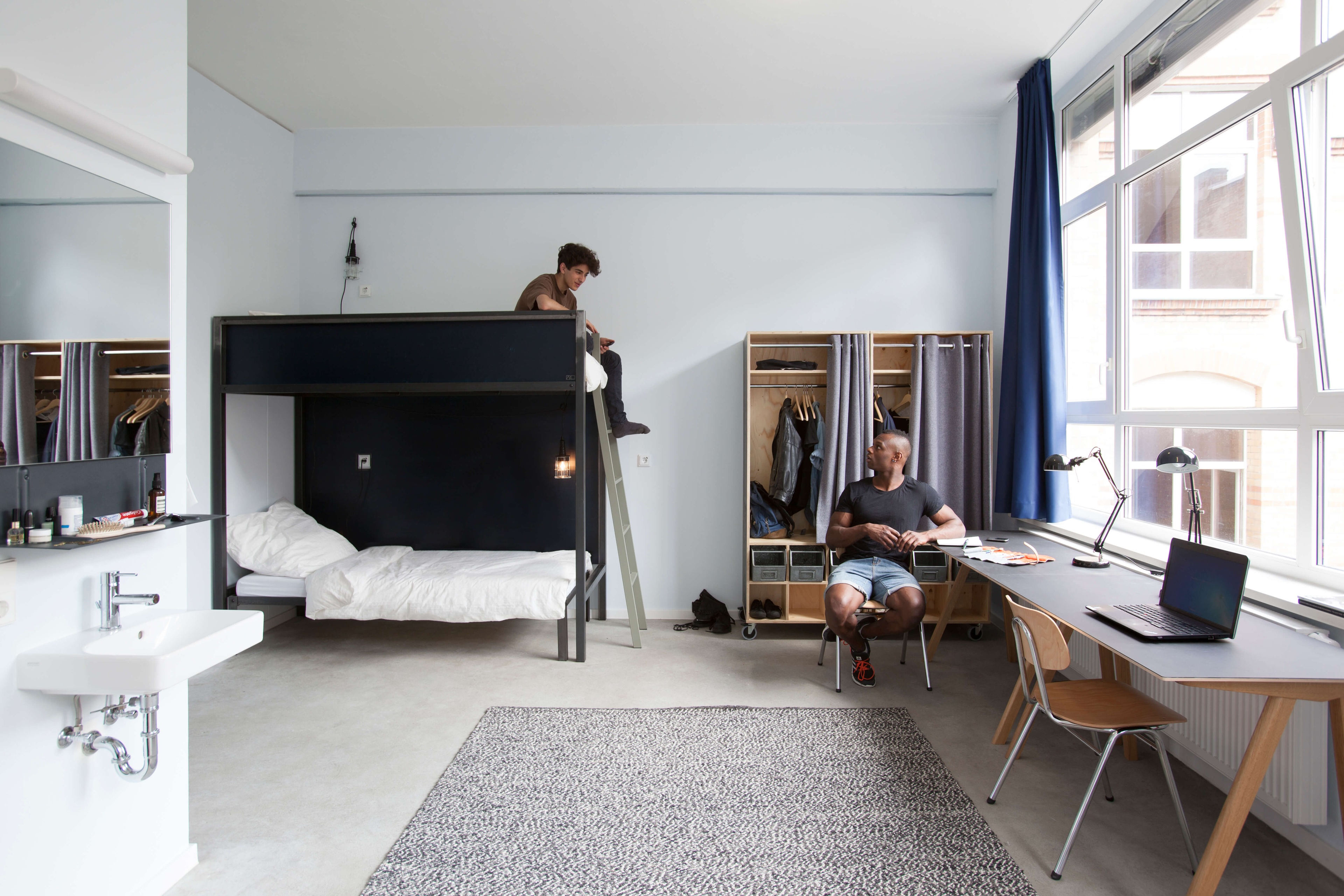
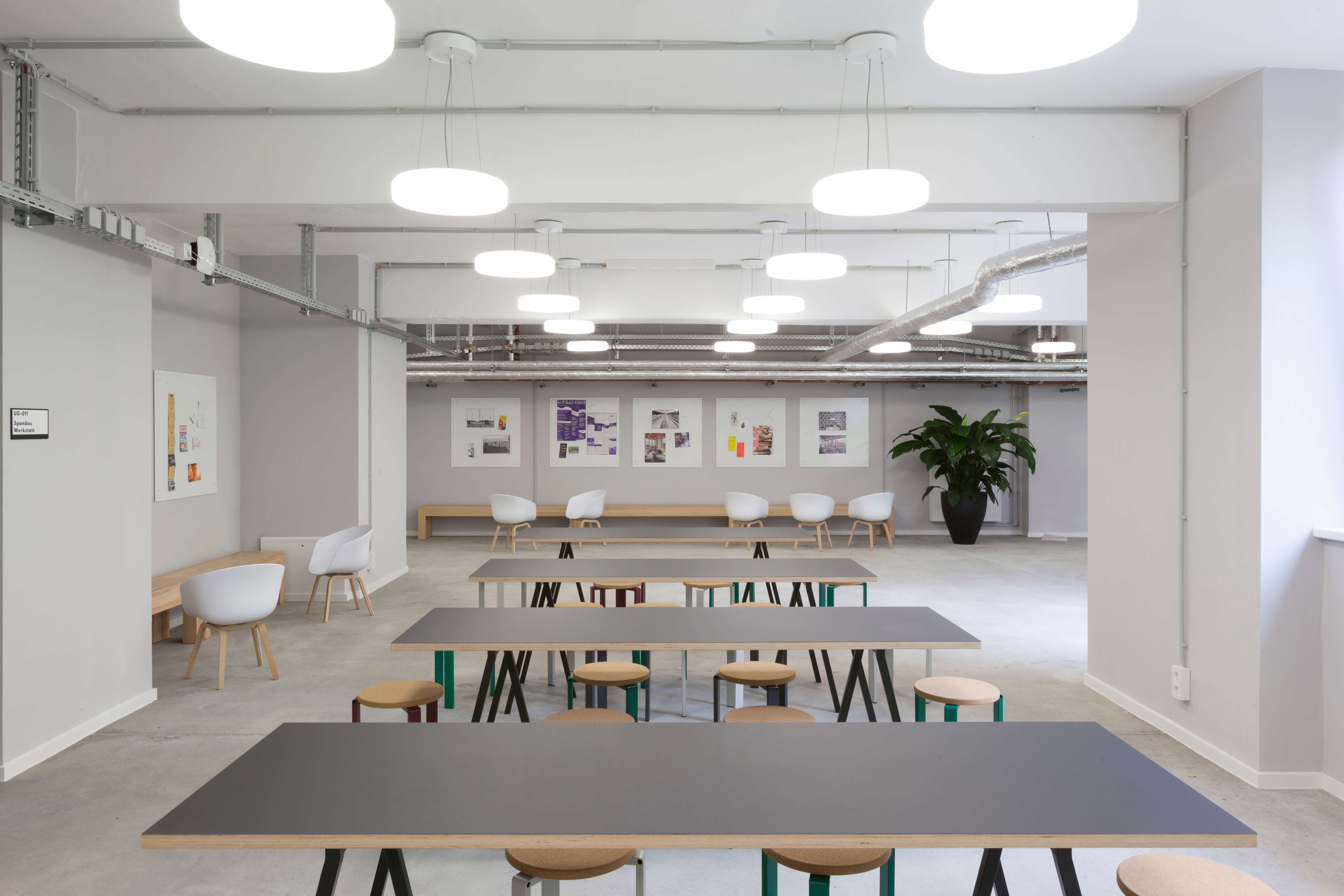
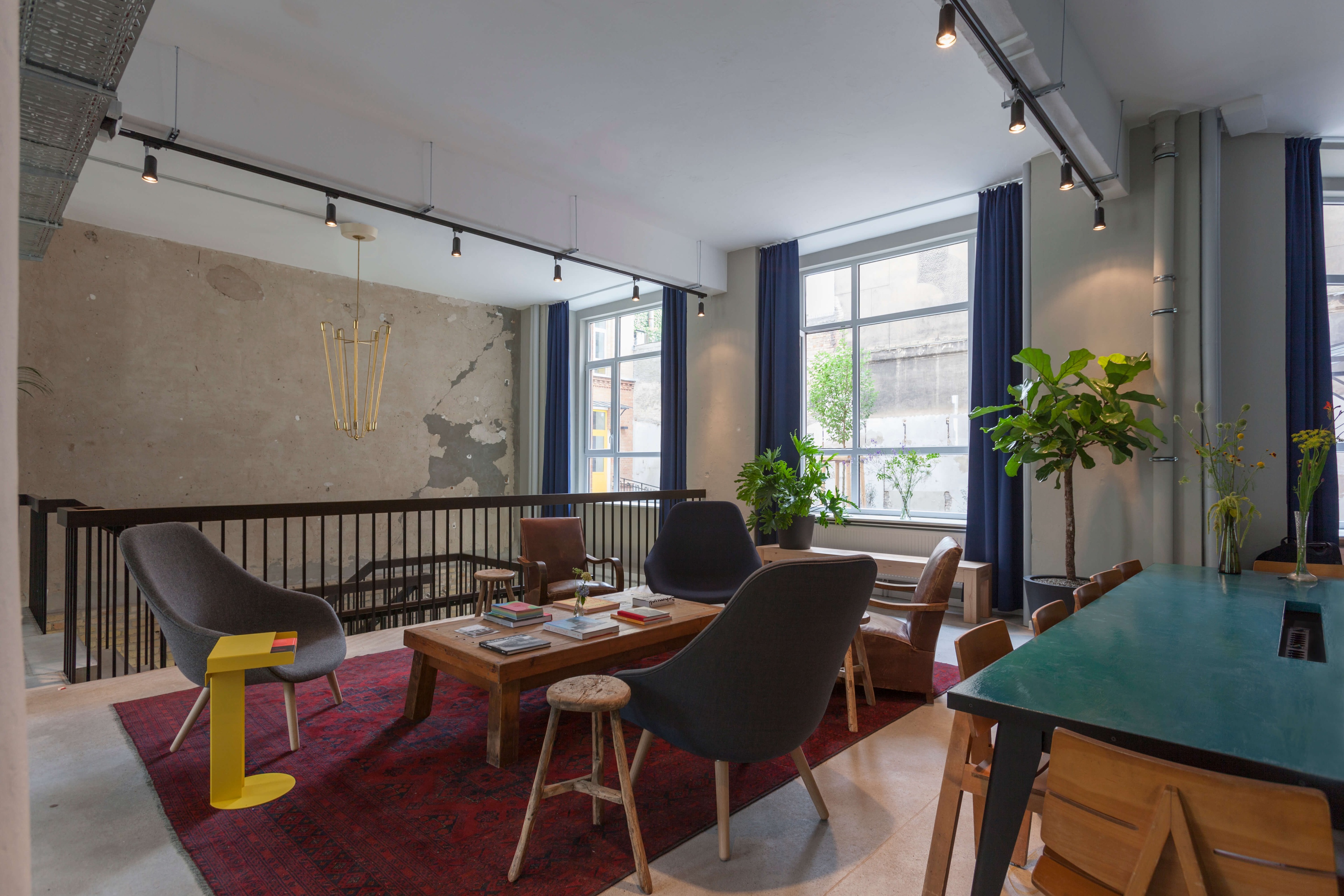
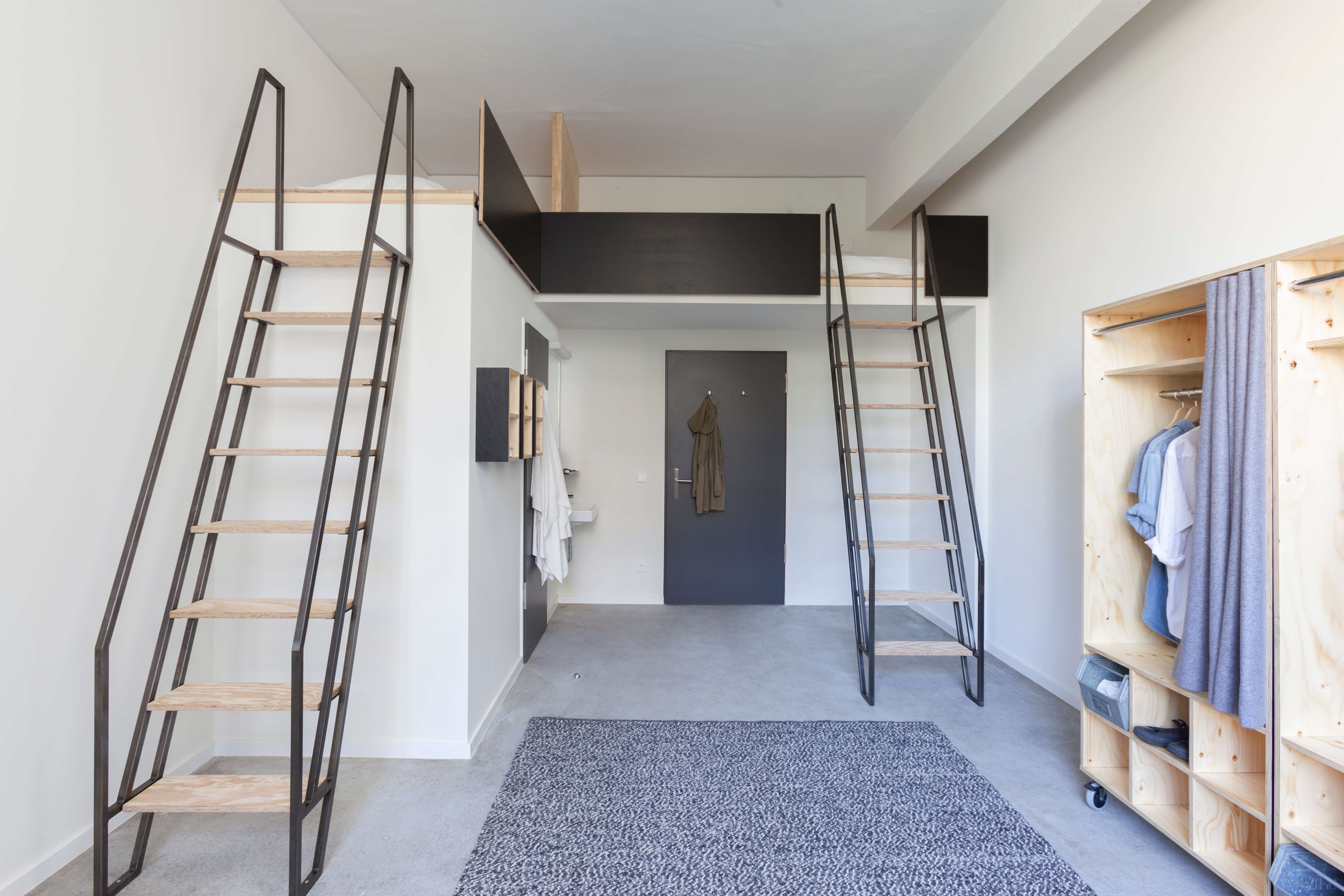
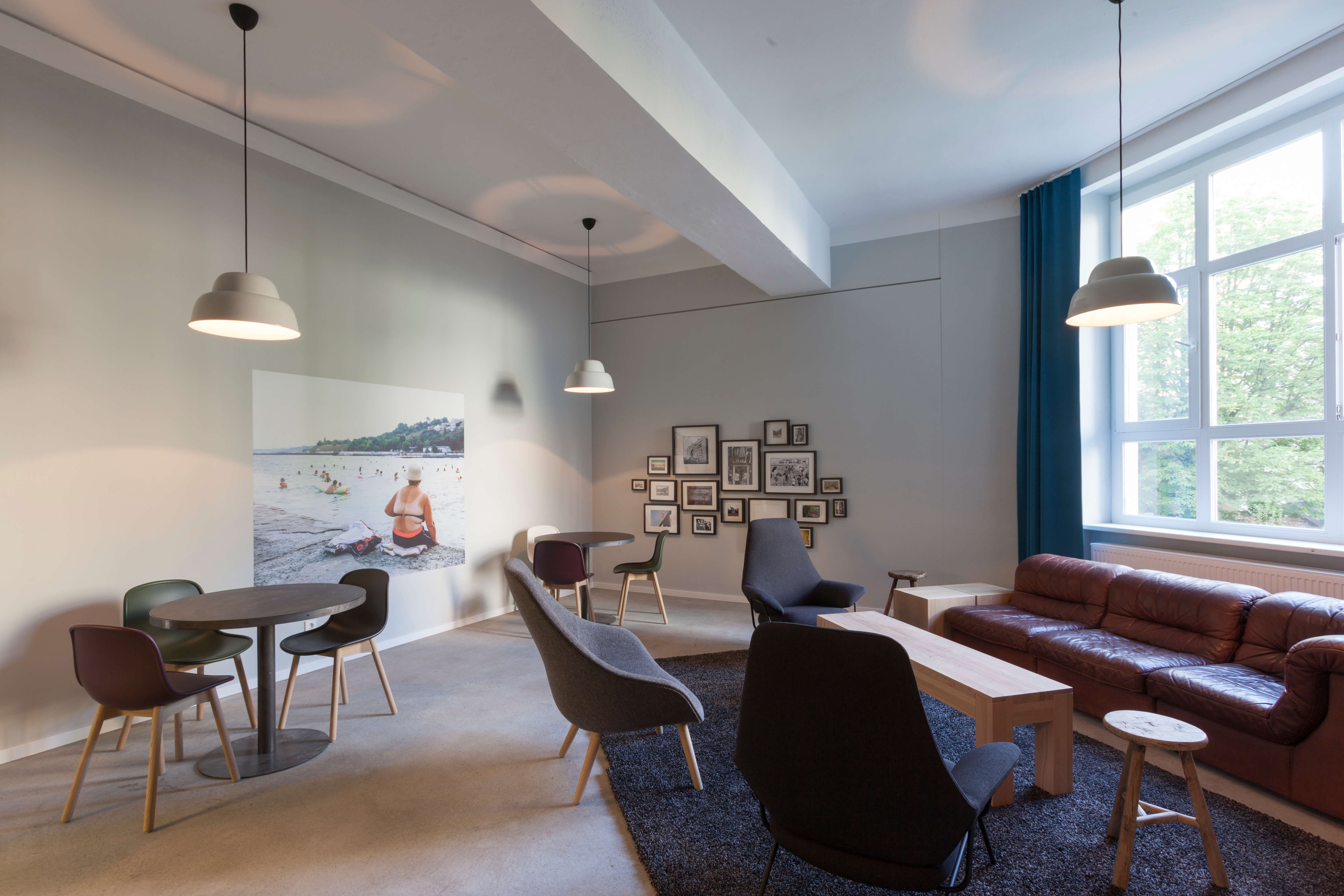
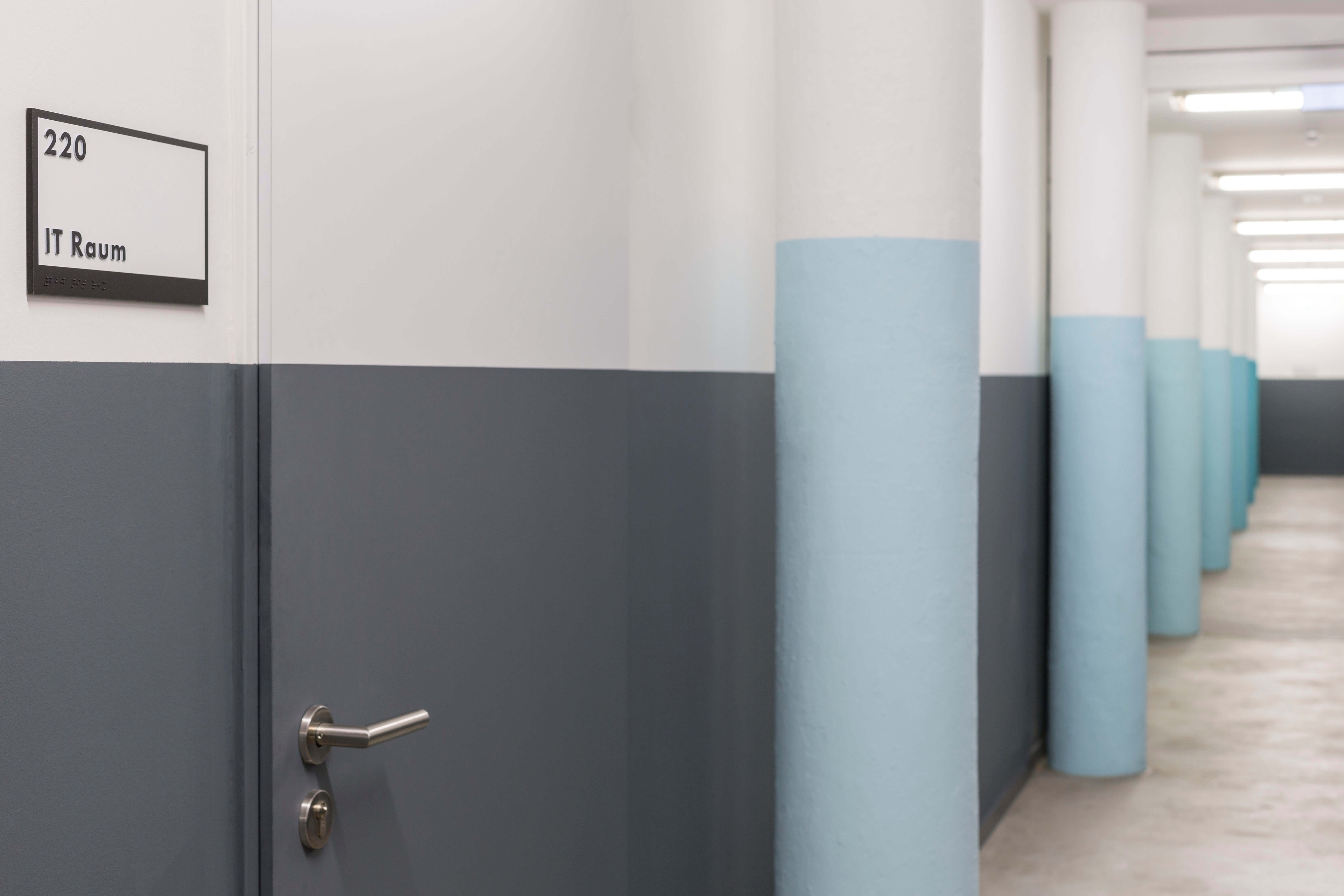
The Council on International Educational Exchange (CIEE) is a global nonprofit that enhances students’ intercultural skills through enriching study-abroad programs. CIVILIAN was contracted to transform a historic factory in Berlin’s Kreuzberg district into an international campus that aligned with the organization’s goal of providing students with flexible and unique study-abroad experiences. Flexibility and connectivity are key themes in this unique campus plan—classrooms, dining areas, residences, and social spaces are all housed under one roof. Dormitory bedrooms contain movable furniture, allowing students to configure their rooms according to their ownpreferences.
Through thoughtful interventions, the historic space is updated to meet the modern students’ needs, while still retaining the building’s industrial history. Materials and artifacts salvaged from the property’s past as a car-button factory are repurposed into fixtures, storage, and furniture for students.
With this holistic approach to the student experience, students can live in meaningful and welcoming spaces that connect them to the city’s rich past, and awaken them to the inspiring possibilities of the future.
CIVILIAN provided initial space planning, concept layouts and test fits, along with concept design documents for interiors and landscape. CIVILIAN designed and managed the FF&E budget, and provided naming, environmental graphics, and furniture design services.










The Council on International Educational Exchange (CIEE) is a global nonprofit that enhances students’ intercultural skills through enriching study-abroad programs. CIVILIAN was contracted to transform a historic factory in Berlin’s Kreuzberg district into an international campus that aligned with the organization’s goal of providing students with flexible and unique study-abroad experiences. Flexibility and connectivity are key themes in this unique campus plan—classrooms, dining areas, residences, and social spaces are all housed under one roof. Dormitory bedrooms contain movable furniture, allowing students to configure their rooms according to their ownpreferences.
Through thoughtful interventions, the historic space is updated to meet the modern students’ needs, while still retaining the building’s industrial history. Materials and artifacts salvaged from the property’s past as a car-button factory are repurposed into fixtures, storage, and furniture for students.
With this holistic approach to the student experience, students can live in meaningful and welcoming spaces that connect them to the city’s rich past, and awaken them to the inspiring possibilities of the future.
CIVILIAN provided initial space planning, concept layouts and test fits, along with concept design documents for interiors and landscape. CIVILIAN designed and managed the FF&E budget, and provided naming, environmental graphics, and furniture design services.